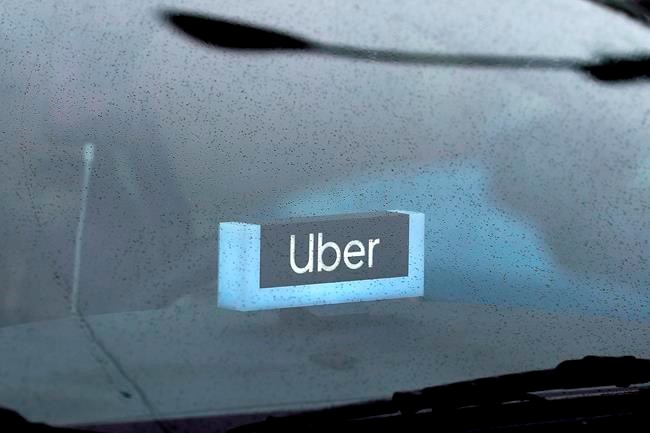SILVER SPRING, Md. — Uber has widened its reach in the fiercely competitive delivery market by acquiring Postmates in a $2.65 billion all-stock deal, the company said Monday.
The acquisition enables the ride-hailing giant to increase its delivery offerings at a time when the global pandemic has suppressed customers' desire for rides while boosting home delivery needs. While Uber's meal delivery business, Uber Eats, has mostly focused on restaurants, Postmates delivers a wider array of goods including groceries, pharmacy items, alcoholic drinks and party supplies.
“The vision for us is to become an everyday service,” said Dara Khosrowshahi, CEO of Uber, in a conference call with investors Monday. “Postmates is a great step along that vision. Anyplace you want to go, anything you want delivered to your home, Uber is going to be there with you, and we think these everyday frequent interactions create a habit, create a connection with customers.”
Uber and its Uber Eats food-delivery division will gain ground against DoorDash, which controls about 37% of the U.S. food delivery market. That's compared with Uber Eats' 20% share before the Postmates deal. Grubhub holds around 30% of the U.S. food delivery market, according to Second Measure, a data analysis company.
“We really believe that the market is much bigger than, let’s say, the traditional delivery players,” Khosrowshahi said. “We look at groceries as a category, there’s a lot of hot food being delivered, we look at essentials as a category that we are going to go after as well.”
Last month, Uber lost out in a bid for Grubhub, which would have made it the dominant U.S. food delivery service. But Amsterdam-based Just Eat Takeaway.com ended up nabbing Chicago's Grubhub in a $7.3 billion deal. Uber was reportedly seeking to team Grubhub with its Uber Eats business.
The food delivery sector is undergoing a major consolidation this year and more is expected. The number of people using food delivery services is on the rise because of the coronavirus pandemic, but customers tend to jump around from service to service depending on where they can find the best deal.
Uber has leaned on its food delivery business with COVID-19 cutting into all ride-share businesses. Uber's rides business slid 3% in the first quarter and dropped 80% in April compared with the same time last year. Bookings through its food delivery business, on the other hand, surged 54% in the first quarter.
By acquiring Postmates, Uber not only gets the bigger share of the food delivery market it has long desired, but also shores itself up against further pandemic-related losses in its ride-hailing division.
“In our opinion, Uber finds itself with its back against the wall on the consolidation theme as the Grubhub deal fell apart on anti-trust concerns, and now must quickly look to acquire market share and added scale which makes the Postmates deal a smart strategic fit,” analysts with Wedbush Securities wrote Monday.
Postmates, a closely held private company, claims 600,000 food and restaurant merchants to choose from, which it claims is the largest selection in the U.S. The company says it has the ability to serve 80% of households across all 50 states.
The boards of both companies have approved the transaction and the deal is expected to close in the first quarter of 2021.
Uber and Postmates are both based in San Francisco.
Shares of Uber Technologies Inc. were up about 5% Monday morning.
Matt Ott And Cathy Bussewitz, The Associated Press




